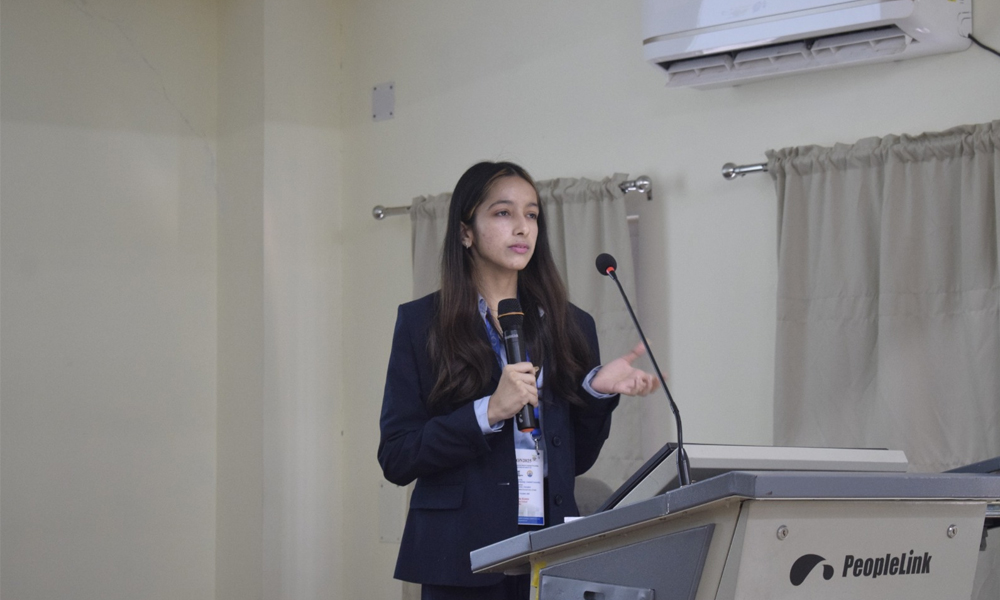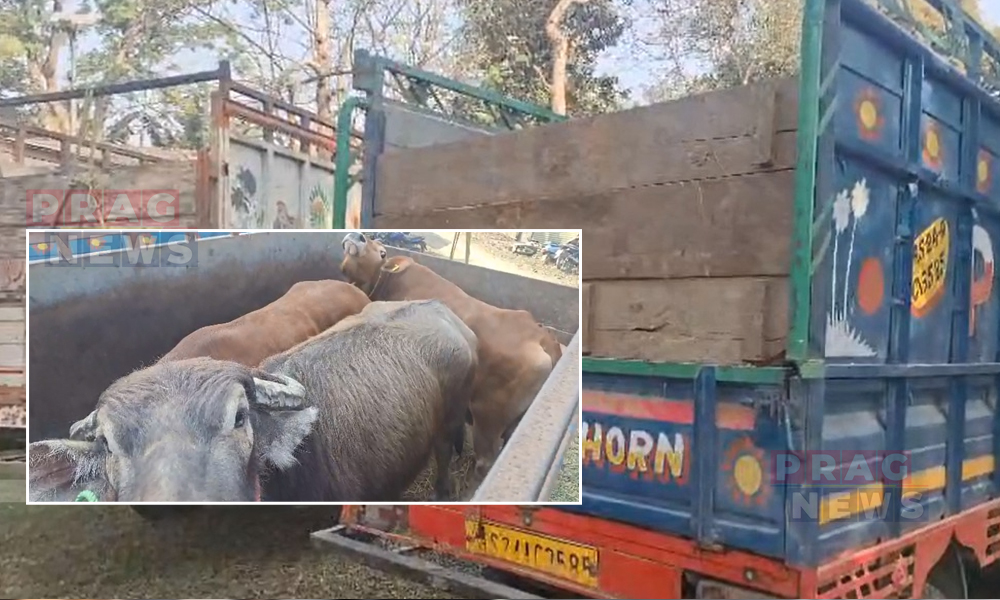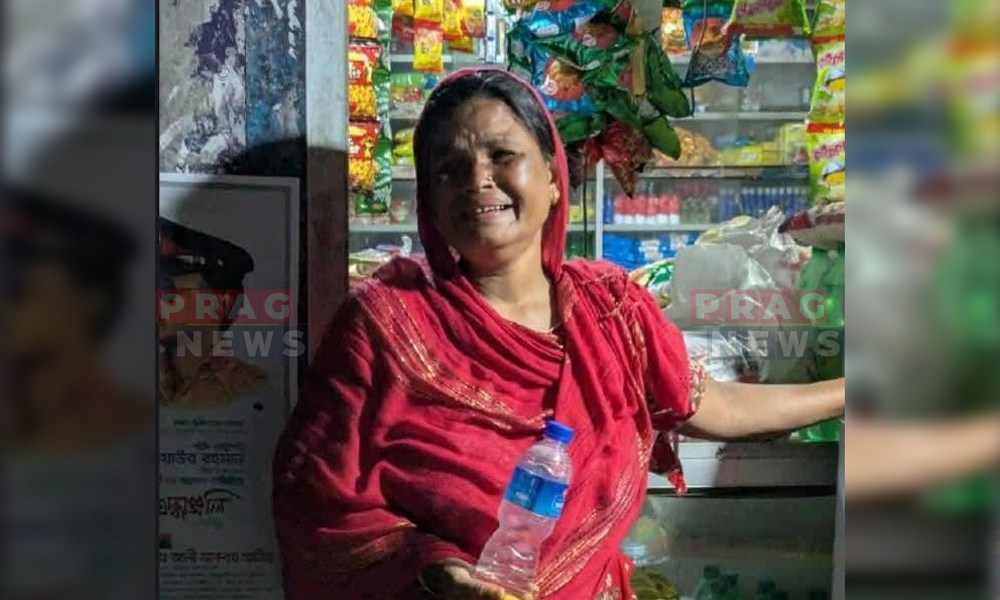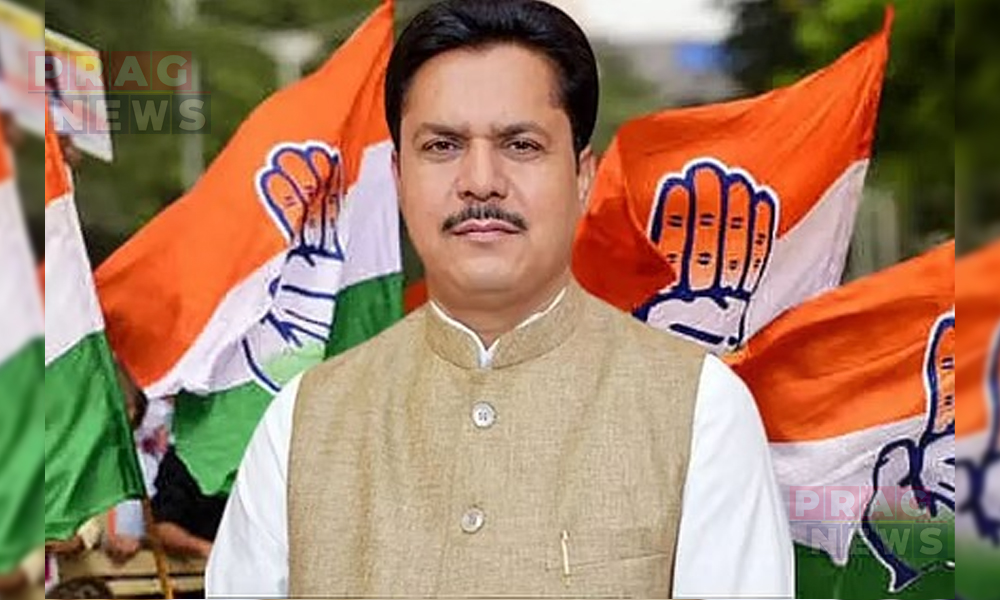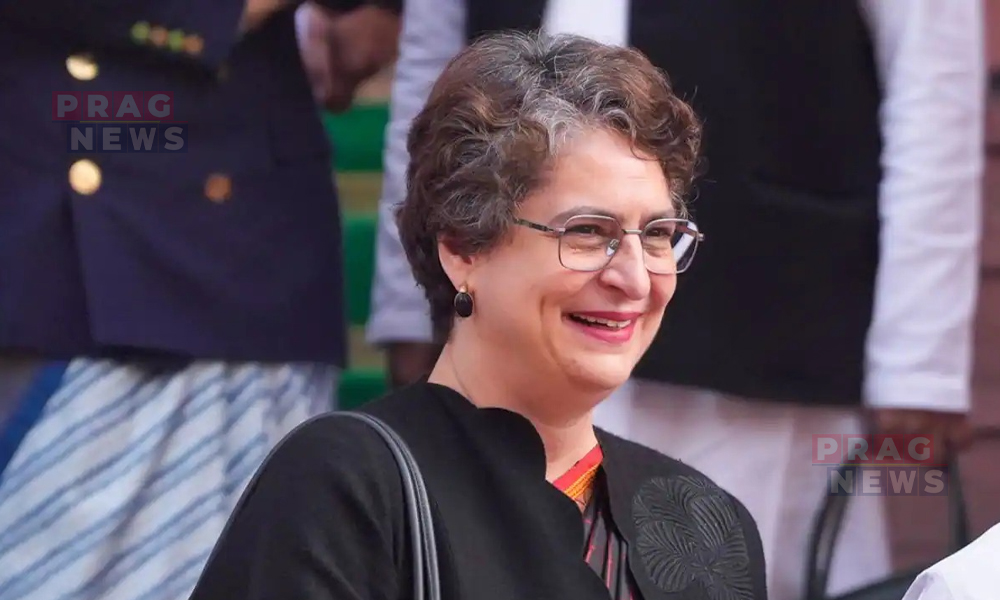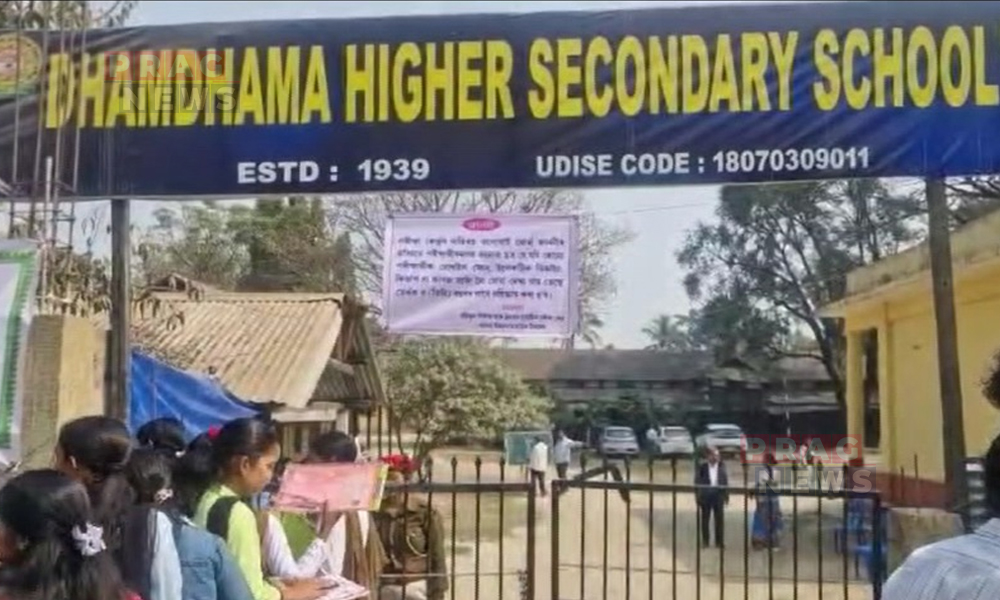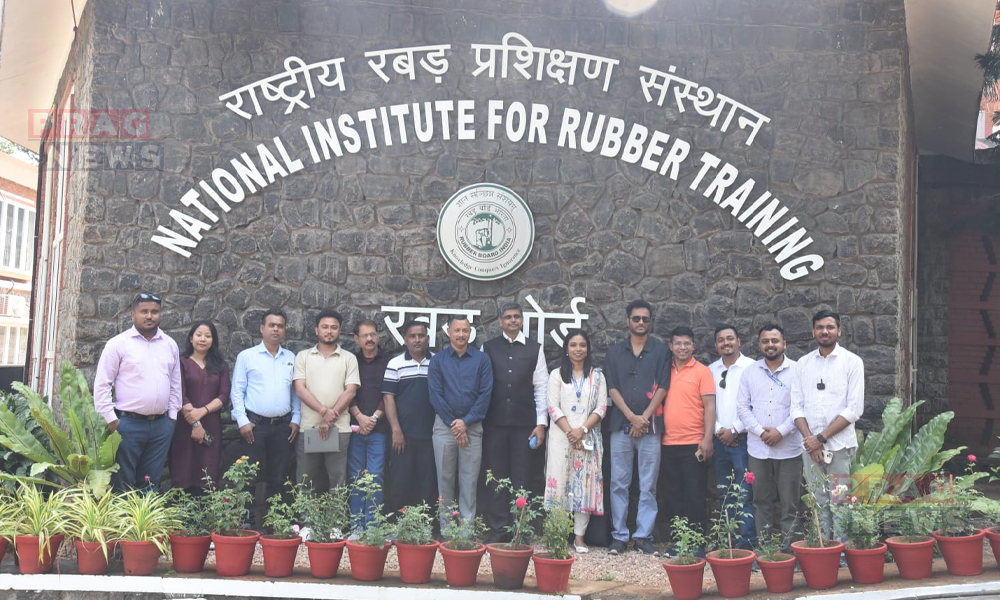Teen RGS student presents AI Sanskrit–Chinese phonology paper at Gauhati University’s RegICON 2025
Digital Desk : In a rare instance of a school student sharing space with university researchers at a mainstream natural language processing (NLP) forum, Royal Global School (RGS) Class XII student Huma Abia Kanta on Thursday presented a full-length technical paper on an artificial intelligence–driven Sanskrit–Chinese phonology model at RegICON 2025, the Regional International Conference on Natural Language Processing organised by the Department of Information Technology, Gauhati University, where her work was featured in regular sessions alongside faculty and researchers from leading institutions in India and abroad.
Her paper, titled “A Buddhist-Lexicon-Inspired Encoder–Decoder Model with Luong Attention: Seq2seq Reconstruction of Sanskrit Phonology via Tang-Era Siddham–Hanzi Transliteration,” proposes a sequence-to-sequence encoder–decoder architecture with Luong attention to reconstruct Sanskrit-oriented phonology from Tang-era Chinese Buddhist lexicon entries, using a curated bilingual dataset designed to preserve historical sound correspondences between Siddham-derived forms and Chinese characters, and argues that such attention-based neural models can assist digital philology, cross-linguistic comparison and script-to-script transliteration for scholars working on Sanskrit, Chinese and related classical traditions.
Co-authored with Dr. Ankur Pan Saikia of Assam down town University and Dr. Utpal Barman of Assam Skill University, the study was placed in technical sessions that also discussed multilingual benchmarks for Indian languages, Assamese coreference resolution, low-resource machine translation and speech technologies for endangered languages of Northeast India, with her mentor describing her inclusion as a rare case of a school-going researcher presenting in a regular technical track; the conference also featured keynote talks by internationally recognised NLP experts such as Prof. Francis Bond and Dr. Karma Wangchuk.
The authors detail dataset construction, tokenisation choices, model configuration, parameter tuning and evaluation based on phonetic similarity and composite scores, and argue that high-fidelity encoder–decoder systems trained on philologically validated pairs can approximate expert reconstructions with strong phonetic and rhythmic fidelity, while flagging the need for larger corpora, better handling of dialectal variation and the inclusion of multimodal (including acoustic) features in future work so that such models can be extended to broader cultural-heritage and manuscript-preservation tasks.
RegICON 2025 comes in the same year that Huma presented another AI/ML research paper at an international conference in Azerbaijan, making the Gauhati University presentation her second international-level appearance as a school-going researcher and, according to mentors, reinforcing the message that early-stage scholars from Assam and the Northeast can contribute to global conversations in emerging fields when provided structured guidance and credible academic platforms.
Alongside her research work, Huma has also founded “desicodes,” an open-source initiative that enables coding in Assamese and other Northeastern languages through an Assamese-to-Python transpiler called “asPy,” with additional language modules under development; the project aims to make programming more accessible to rural and first-generation learners while helping bring underrepresented regional languages into the digital and AI ecosystem.
Huma expressed gratitude to Royal Global School Chairman Dr. A.K. Pansari for supporting her through scholarship and encouragement, and to School Director Dr. Arup Kumar Mukhopadhaya for consistently backing inquiry beyond the prescribed school curriculum and trusting her with the freedom to explore complex topics, while describing her mentor and co-author Dr. Ankur Pan Saikia as a constant source of guidance and reassurance, adding that the faith reposed in her work motivates her to contribute more meaningfully to India’s research and innovation story.

